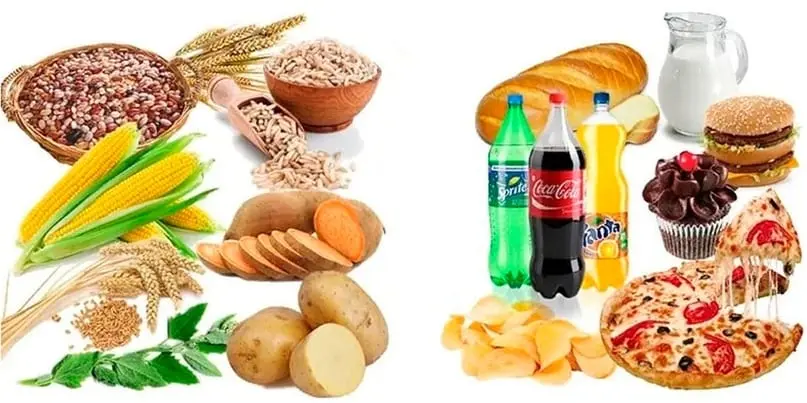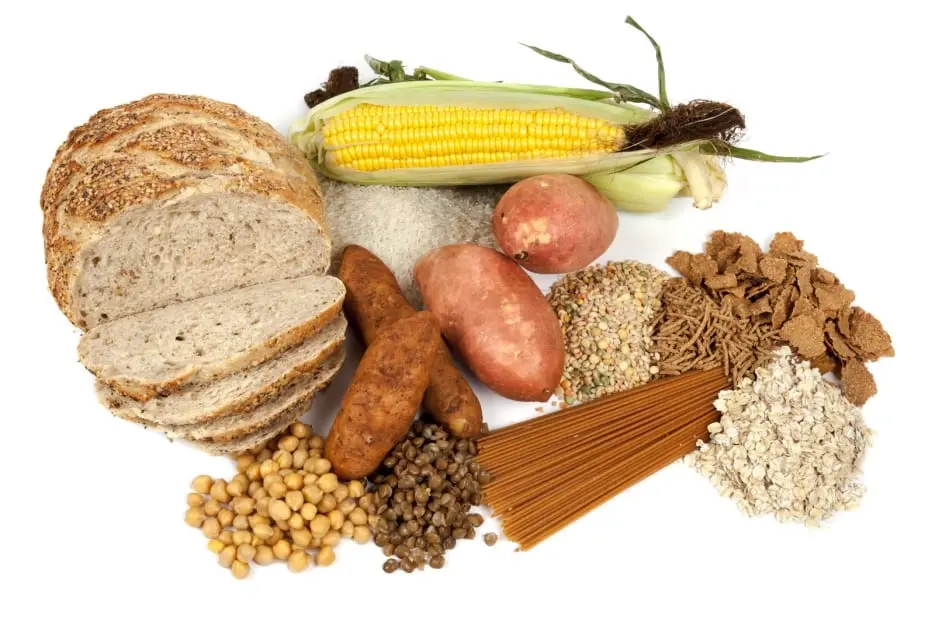Contents
Introduction
The human body receives carbohydrates primarily from plant foods. One gram of carbohydrates obtained four kilocalories.
Less than fat, but these substances are easily broken down and consumed by the body. Therefore, their expense is more than half the required energy.
Depending on the structure of the carbohydrates are divided into simple and complex. The first is called sugars and starches second.
Sugars can be simple or complex as well – monosaccharides and disaccharides.
Simple monohydrates

Monosaccharides include glucose, fructose and galactose. They have a pronounced sweet taste and easy to digest.
Glucose and sucrose in pure form are contained in fruits and berries, and particularly in the honey bee. Glucose, the most important of the sugars, the body uses mainly for muscle and nervous system.
Fructose is the most common carbohydrate found in foods of plant origin. Part of the fructose is converted in the liver into glucose, the rest goes directly into the blood.
Galactose is not found in nature. It is produced in the splitting of the disaccharide lactose – carbohydrate of animal origin that is contained in milk and dairy products.
In the liver galactose is metabolized into a more universal source of energy glucose. And the remains unsplit lactose serve as food for beneficial microflora of the gastrointestinal tract.
The disaccharides sucrose, lactose and maltose are also easily digestible sugar. But in sweetness and solubility in water, they yield monosaccharides. Sucrose is formed of glucose molecules and fructose.
The most commonly sucrose gets to our table in the composition of beet and products of its processing – Sugar. It contains over 99.5 percent sucrose. Sugar rapidly cleaved in the gastrointestinal tract to glucose and fructose, which are immediately absorbed into the blood.
Lactose – milk sugar – carbohydrate of animal origin, composed of galactose and glucose.
To break down the lactose the body requires a special enzyme, lactase. If the body does not produce it, there comes an intolerance to milk and dairy products.
Maltose, or malt sugar, consists of glucose. It is found in honey, beer, malt and molasses.
Complex carbohydrates

To complex carbohydrates include the starches, pectin and cellulose. They are very poorly soluble in water and digested slowly, with the help of enzymes during the process of splitting up of simple sugars, mainly glucose.
The starch takes up to 80 percent in the total amount of carbohydrates entering the body with food. Most of the starch we get from grains: wheat, corn, rye. Potato consists of for about 20 percent.
Starch fo animal origin is called glycogen. It is synthesized by the body from simple sugars, but is extracted from meat products, where its a 1.5–2 percent.
Glycogen is stored in liver and muscle fibers in case of an emergency need for additional energy. For example, strenuous exercise or stress.
Pectin and fiber, which are called dietary fibers are digested by the body very slow, more than half of their digested by microflora in the colon. Fiber is very important for the normal functioning of the intestines, stimulating peristalsis.
In addition, dietary fiber swelling in the stomach, slow the absorption of fats and carbohydrates, allowing them to flow into the blood gradually, without putting off reserve. The pectin and cellulose contained in fruits and vegetables.
A significant portion of the carbohydrates of the modern person uses in the form of sucrose contained in the finished products, confectionery and sweet drinks. But that carbs gave you energy, and not put off in the form of fat reserves, the proportion of simple carbohydrates in the diet should not exceed 20-25 percent. The balance can be met if to prefer sources of complex carbohydrates and fiber: vegetables, fruits, legumes, oatmeal, pasta from durum wheat and whole grain products.
Consumption rates developed by the Institute of nutrition:
Physiological need in digestible carbohydrates for an adult is 50-60% of daily energy requirements (from 257 to 586 g/day).
Physiological need for carbohydrates for children up to year 13 g/kg of body weight, for children older than one year from 170 to 420 g/day.









